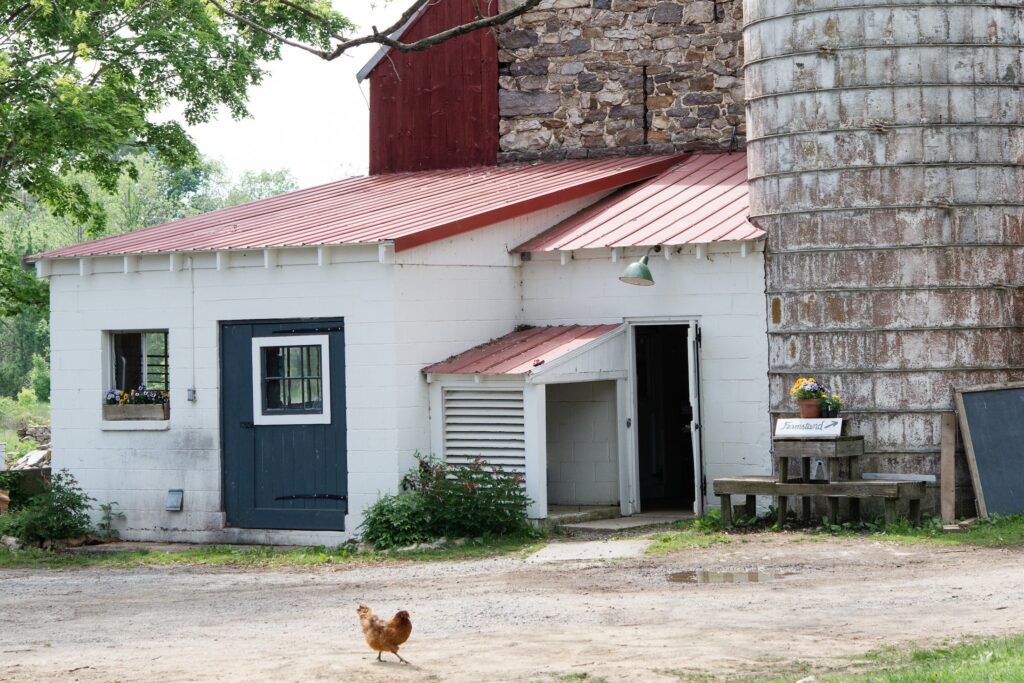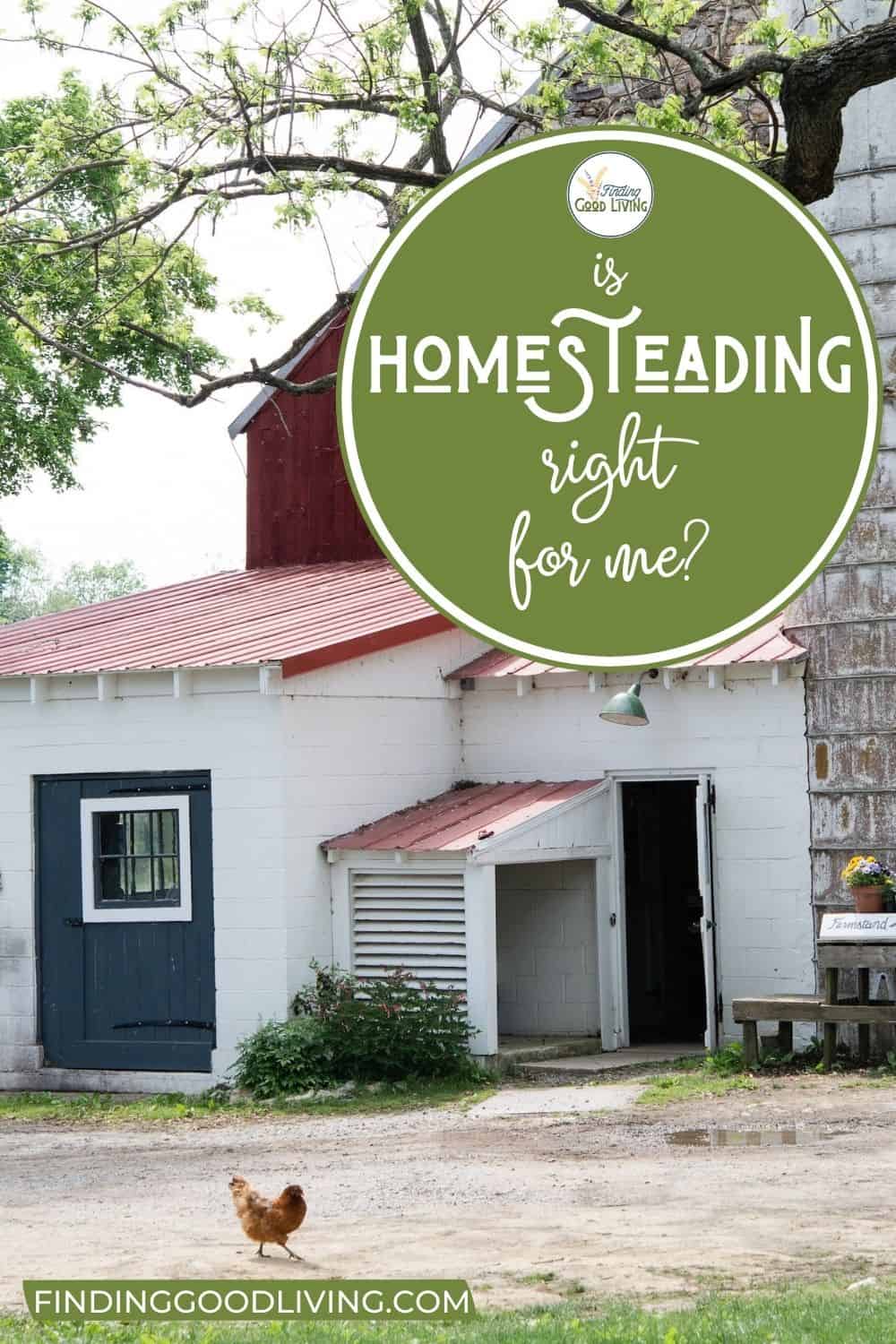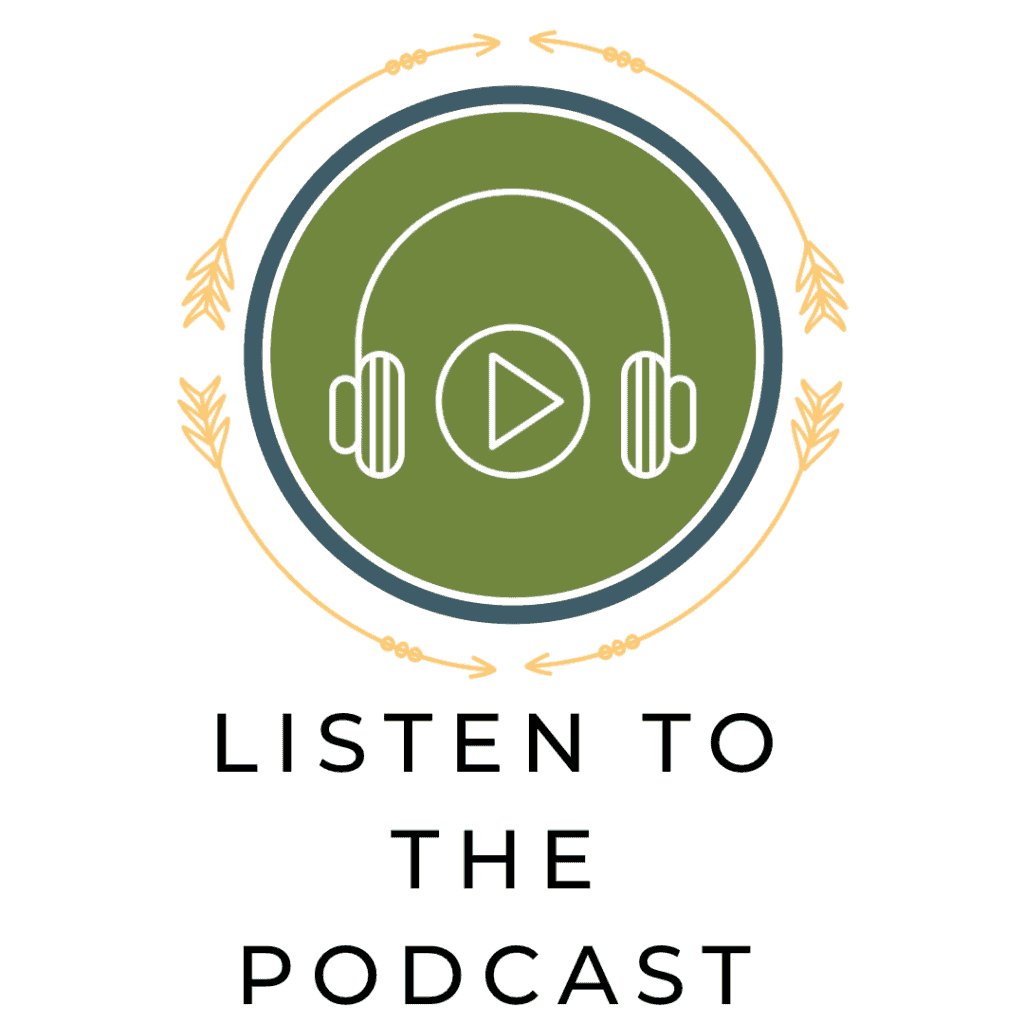This post may contain affiliate links. Please read our disclosures for more information.

Choosing to homestead shouldn’t be a short decision, and it shouldn’t be an easy decision.
If you’re considering this lifestyle, asking the question “is homesteading right for me” should be a long, extended conversation over days if not weeks or months. But why should it take so long?
Homesteading isn’t just a change of address or a change of what your backyard looks like. Homesteading honestly is an entire lifestyle change. Doing ample research upfront is always a good idea when considering something that is going to cost you time and money.
When you consider the fact that homesteading or living a farm life changes everything from your financial picture to your family’s daily routine to how to spend your downtime (or lack thereof), it’s definitely beyond important to take your time to ensure you’re considering as many facets of this life change as possible before diving in.
Most of these questions are for someone starting to look into moving to new land to start a homestead, but they can be still be applied to someone who already owns a sizeable piece of land and is considering making more use of it. Carefully read through these 12 questions to ask yourself as you consider getting started homesteading to see if it’s a good fit for you.
Table of Contents
12 Questions To Decide Is Homesteading Right For Me
1) Do I Have The Time & The Money To Start A Homestead Right Now?
Whatever you discuss about this life, this is by far the most important question to ask yourself before you dive in. Absolutely non-negotiable.
Not surprisingly, THIS is the question that will make or break the continuation of this conversation in your home. Not everyone is going to be ready to jump into homesteading and not in small part due to financial or time constraints.
Are you budgeting your money? If not, do yourself a big favor and 1) start budgeting, and 2) do NOT start a homestead, at least not yet. It is SO important to run some numbers and see if there is room for the inevitable extra expenses involved in this life.
From animal feed to garden seeds to even veterinary bills, homesteading has a way of sometimes becoming a very expensive hobby. Having a budget is the only way to ensure you’re not going to put your family into a really rough spot with this lifestyle.
If money is a big hold-back for being able to start your farm, you might consider planning out some #homemademoney ideas as you have this conversation. Ask yourself what you can and are willing to do/make/sell in order to offset costs on your homestead. It may not be possible to factor these money-making activities into your finances if you’re just working up to purchasing land, but they could be factored into some of your “what does homesteading cost?” calculations.
Even if you do have the money to start a homestead, don’t forget to consider your income source. Is it steady, reliable, and unlikely to significantly reduce in the future? A secure full-time job with a good paycheck is a very different future homesteading outlook than a part-time freelance gig, even if it makes the same money per year. Who knows if the work will still keep coming for the freelance job.
Another example is if you know you’re expecting a baby and one of you plans to “retire” and become a stay-at-home parent, be sure that you’re doing your calculations on affording a homestead based on the expected future income, not just on today’s numbers!
Starting most anything, homesteading being no exception, is an investment in both time and money. So give your time serious consideration.
How many hours outside of your day job do you have to devote to your homestead or hobby farm? How busy are you from the time your kids wake up to when they go to bed? Do you work from home, do any food preservation like canning food, or have other activities that suck up most of your time?
If you’re completely strapped for time as it is, take a solid look at your day plan — not just your own day but your family day schedules. Using a time-blocking approach, see if and where you might fit animal care or weeding and watering the garden into your days. If you absolutely cannot find a free minute, you’d be wise to do some serious re-evaluation and work on making free time in your day before you try to lengthen your to-do list any further.
2) How Much Of What I Want Is Food And How Much Is Fun Or Fodder For My Hobby Farm?
This is something you need to know before starting anything homesteading-related, really. Honestly, this is something you want to consider before you even purchase land for homesteading.
What is your end goal with this property? If the only reason you want the land is that it has a beautiful view, you might find yourself needing to re-evaluate why you wanted it so bad in the first place and possibly change your goals (and land size/price). This may mean sacrificing some views for more food-producing space or sacrificing some food-producing space so that you have those incredible views you’re after.
Carefully think about what you want on your homestead (ie what you want out of it) and compare that against the land you have or are looking at. If you’re buying new land, make sure it matches what your raising and growing plans are. If you’re planning to use the land you already have to start homesteading, then make sure the things you want to get going will actually be compatible with your space, soil quality, topography, etc.
3) Do I Have The Skills, Knowledge & Tools I Need To Get Started Homesteading – Right Now?
Maybe you have no idea how to start homesteading – that is completely fine!
There is always the library (never underestimate good homesteading books as resources), the internet (YouTube is full of great info!), or connecting in other ways with established homesteaders either locally on online.
(We have most enjoyed joining the homesteading community on Instagram, as well as creating a space for homesteaders and hopefuls on Facebook.)
Farming is all about figuring out what works best for your circumstances and circumstances vary greatly from person to person. Do some research and get creative about thinking outside of the box when it comes to your specific situation and dreams.
That said — if you’ve lived under a rock your whole life and don’t even know how to transplant a vegetable plant into the ground….you might hold back on diving in. Make a list of the skills and knowledge to have before starting a homestead and work your way down the list, familiarizing yourself with each at an at least basic level before you dive in.
4) Do I Have the Energy & Stamina To Do What Is Necessary To Successfully Start A Homestead?
This is one of those things you most likely cannot know for sure until you try it.
But that makes it no less important of a question.
Are you struggling with disabling medical conditions? Do you tire easily, have low stamina, or are just plain lazy?
On the one hand, you could make the argument about how a more natural and physical life could help you improve your health, improve physical abilities, and improve stamina and work ethic. But on the other….depending on exactly what you’re situation is, it may not be the right choice for you.
Homesteading IS going to take a lot of work.
If you’ve never grown a garden before, maybe spend a summer growing one at your current home and see what it takes. Start your seeds, harden off the plants and transplant your veggies outside, keep the weeds under control, prune your vegetable plants when needed, etc. Do the whole thing and see how it feels. If 10 vegetable plants are overwhelming, maybe stay put a bit longer before you decide to grow a 1-acre garden and grow all your own produce.
Gardening is typically the easy start to test the waters, so to speak.
Keep in mind that mucking stalls, filling water buckets, and all the things that go into livestock care may be even more physically taxing for you than gardening is. If you’ll be unable to keep up with the work on a homestead — from gardening to caring for livestock to general property maintenance — then maybe take a more careful look at if that could change in the future.
5) Do I Have The Skills & Knowledge To Turn My Land Into A Productive Piece Of Property?
Sometimes it’s not time or interruptions that stop you from getting something going or done, it’s simply not having a clue how to proceed.
If you don’t have the knowledge or skills needed to make your property what you want it to be in terms of homesteading for yourself and your family, it is going to be a very hard road. It’s completely fine to plan to homestead, find and buy good land or a farm, and learn just before/as you go. Really!
Just make sure you commit yourself to the idea of learning BEFORE you act. Do your research on the animal you want to add, or the farm project you want to accomplish, and make sure that you’re feeling very comfortable with your new knowledge before you dive in.
Another option is to build a network of people who can help you where you lack. If you don’t know a thing about carpentry work, have a reliable and skilled carpenter on hand to call when you need it. If you’re completely uneducated about animal care, take the time to research farm vets in your area PRIOR to getting going, so that you can hopefully find one willing to come to your farm any time you need help, and who is also willing to talk with you and help further your education in that area. This might cost you a lot more money in terms of more frequent farm calls, but it will be an invaluable resource to help you learn to not need them as often in the future.
When you’re in some downtime, such as when you likely aren’t gardening in the dead of winter, commit yourself to research about one new aspect of homesteading or learning one new skill every month. Know that there are going to be things you just won’t be able to learn until you’ve had experience.
It’s not a race — homesteading is all about taking your time at each step along the way and enjoying the journey. Trust me when I say you’d much rather get to a certain point a year slower but with less loss, less stress, and fewer mistakes, than to get there sooner and have problem after problem due to your inexperience or lack of knowledge.
6) Do I Have A Sense Of Adventure That Will Enable Me To Continue Despite Setbacks Or Obstacles (Dealing With The Unexpected)?
Homesteading is fun and all, but there will be times when things do not go as planned.
Weeds can overtake a garden in a very short time given the right conditions. Livestock can get sick. Predators can decimate your farm in just a few days or weeks.
Some setbacks will be a major nuisance and mostly irritate you. And some may knock you down completely for a while. Can you pull yourself back up and rebuild? Can you carry on after heavy animal loss, regardless of the reason? Can you recover from a rookie homesteading mistake that costs a ton of money?
Homesteading requires you to have a certain amount of gumption, strength of character, and the ability to rebound. It’s a little easier if you have these traits before starting, but know that these are characteristics that you’ll want to work on strengthening over time.
7) How Much Am I Willing & Able To Do By Myself?
Homesteading often carries the notion that you (with your family) are going it alone. That you’re rough-and-tough farm trailblazers that can and will take complete care of everything yourselves.
But what if there’s a discord between something you want for this homesteading life and what you’re willing and able to do?
If you can’t be around a cow without gagging at the smell, you likely won’t be able to muck out stalls for a while, at least. You can’t have and milk the cow every morning without the rest.
If you dream of growing your own meat but you (already?) know you won’t be able to kill any animals you raised yourself and go to know, then you might want to take a different approach to what you consider your dream homestead vs. before.
Having a network or a group of friends or neighbors that are willing to help can be a big part of homesteading. Community is a great thing!
If you’re hoping to be able to lean on that community for help, like bartering for fresh milk in exchange for something you have, or similar, it’s pretty important to be critical about where you homestead. A 5-acre parcel in the middle of the suburbs is not likely to have neighbors “useful” in much of this aspect of being helpers. Similarly, any size property in the middle of thousands of acres of fields with no neighbors for miles may equally isolate you.
Another, related consideration to this solo vs community aspect is this: how much power can you pull together to influence policies in local government if needed? This is a huge topic for a separate article, but it’s worth considering. Fighting for your right to continue to homestead in the middle of a busy, crowded urban or suburban area is going to have a far different future than being out on the outskirts of town or further.
8) Do I Have A Strong Support Network As I Go Through The Process of Starting My Homestead?
It is always good to have a support network so that you can get through the hard times. We all know this.
This is something that is important to consider when starting out on any journey! It is more than just having someone to come help you build fences for livestock or plant fruit trees – it is also about finding like-minded people who share some of the same beliefs as yourself, like homeschool education or freedom to use your land as you see fit with less government oversight/involvement.
But even more so than having a good neighbor or a good helper — what might homesteading do to your existing relationships?
Will people look down on you for “toiling in the soil” for your food instead of taking advantage of the convenience of grocery stores? Will your closest friends suddenly not be very interested in coming to visit because they don’t like “farm smell?”
What would that mean for your mental health if you were to suddenly find yourself a bit of an outcast?
It’s ok if not everyone loves your new lifestyle. It’s ok if some people fall through the cracks and out of your life. If they aren’t truly supportive of you following your dreams, they may not have been the right people to have around anyway.
Keep all of this in mind as you go into homesteading. You won’t be able to change who and how people are, but you can at least mentally prepare yourself for what the future (with or without them in it) will look like and what that will mean for you and your family.
9) What Are My Goals And Dreams For My Family And Our Lives?
Working towards debt-freedom? Planning to retire early and travel the world? Dreaming of subdividing your land and building houses for your kids to become your neighbors when they grow up?
Some dreams of the future are more compatible with homesteading than others. If you’re hoping to retire early and travel, and you’re already 50 years old…it honestly may not be worth it to try to buy land and get a homestead started if you’re hoping to retire and become nomads at age 55. There just isn’t much/enough time to get going, in terms of cutting out the grocery store and having “all the things” within 5 years.
And even if you did manage to have all the things…what would you do with that livestock in those few short years, so that you COULD travel?
If you dream of a family homestead where everyone works together happily like some old-time black and white TV show, that’s a lovely idea. But how does everyone else in your household feel about that? Make it not just a conversation between you and your spouse, regardless of the age of your kids. Make it a whole family conversation and decide what’s best for everyone. That’s your job as a parent, after all.
10) Are There Other Resources On My New Property That Can Be Utilized As Easily As The Land Can?
Although this is more of a question about land features to consider when buying a homestead, it’s still a thought here.
Consider this: you just bought 10 acres that is dense woods except for about an acre. Sounds like a pretty small homestead, with only one usable acre, right?
Wrong! Preferably before you buy the land, have the timber assessed. You may be able to get a fair bit of those woods somewhat cleared and get paid for the timber value. Talk about a win! You might even be able to put that wood to use to start a cutting board business, make handmade wooden spoons, or make similar hardwood-based crafts to sell!
Another option, depending on your needs and plans, is having the timber cleared and milled into lumber for you to use on your homestead. This is a great option if you need to build barns and fencing for your homestead to get truly up and running! Just keep in mind that hiring this work may be quite costly, and doing it yourself is no easy (and definitely not a super safe) task.
Look critically and see what else you could creatively use to increase the value of your homesteading journey. Do you have a large pond that you could stock for a food source? Do you have a creek through the property that would offer the same? What about any existing fruit trees? A tall and windy hill that would be perfect for a wind turbine to generate power for you? A large open space that would be perfect for solar panels?
11) How Much Am I Willing To Learn To Do For Myself?
Most homesteaders go into this knowing that they have a goal of self-sufficiency and preparing for various hard or even semi-catastrophic situations.
They want to be able to eat in a blizzard if they can’t get to the store, so they preserve their summer garden harvest. They want to raise meat or be able to hunt for it so they aren’t dependent on grocery stores.
While this question may not make a big difference in the basic scope of “do I want to stay in the suburbs/city/wherever or do I want to live a more country/farm life,” it IS something to consider. Mostly because it will affect your approach to what land to buy, how you view your homestead, and what choices you make about adding livestock to your homestead or what to grow in a garden and it will affect whether or not you prioritize preserving your harvest.
12) Am I Willing To Make The Sacrifices Necessary To Start A Homestead?
When you’re at this point in deciding if homesteading is right for you, you need to slow down and truly think about this question for several days, at the least.
Sure, you’ve got the money. The time. Enough skills and knowledge to get you started. A strong sense of where you’re going and what your planned layout for your farm is going to be. You’ve got a support network that is ready to cheer you on and you’re in peak physical condition to make it all happen.
But are you WILLING to shell out what may be a LOT of money to buy land?
Are you WILLING to give up a hell of a lot of your free time — time that used to go to shopping or leisurely reading a book or going to see a movie just for fun — so that you can clear land for a garden, repair a pasture fence, nurse a sick animal back to health, and more?
I said it above and I’ll say it again: homesteading is a lifestyle change. You’re not going to be putting your feet up and binge-watching a TV show all night or all weekend. You’re not going to be sleeping in, because animals need food, water, and to be put out to graze. You’re not going on vacation very much, and if you do it’s not going to be for 2 weeks at a time (unless you’ve got either a lot of money to hire a farm sitter or a VERY awesome family member or friend).
Other Considerations About Starting A Homestead
Again, there is an entirely separate article about homestead property features to consider before you buy any land. Assuming you’ve gotten this far and are feeling like homesteading IS a yes for your family, keep these next things in mind.
You may have decided you DO have the money, for example, to afford to buy a homestead, but some of these next considerations may affect the actual cost of buying the land or they may heavily influence the cost AFTER you buy the land and move in (which may be a heavy blow and not fit your anticipated monthly budget).
Water Quality
It’s obviously pretty important to have good quality water on your homestead. Not just for your family’s health and safety, but for your farm animals and garden as well. A seller is typically required to pass water inspections before an acceptable sale of a home. But that’s not always the case, especially if you’re buying an as-is home in need of heavy repairs.
Get information about the water quality on the land you’re looking at.
If it’s public water you can generally trust the safety of it. But know that you’ll likely have a pretty high water bill every time, with how many hundreds of extra gallons you’ll use filling livestock troughs. You might want to consider looking into rainwater collection systems — if that’s legal in your area — to offset costs.
If instead the home is supplied by a private well, you’ll want to do further digging. Try to get a complete water test before purchasing, if possible. Besides being extra cautious about potential bacterial contaminants, hard water, in particular, can cause a lot of problems on a farm — it’s typically high in calcium which in excessive amounts will kill plants and can cause kidney stones and other urinary problems in livestock.
Water high in certain minerals like iron can also be potentially dangerous to drink in excess. Sulfur, iron, and magnesium are just a few of the more common minerals to look at closely. It may be necessary to install costly water filtration and treatment systems after moving in, so you’ll want to be able to plan for this cost in advance.
Soil Quality
This is going to differ just depending on what state or what area of your state you live in. Arizona and New York have considerably different soil compositions.
Do a little research into the soils in the area you’re looking to homestead in.
Clay soil will be hard to dig to plant a garden in, and will also offer poor water drainage so rainwater is likely to run off instead of seep down deeply to the plant roots.
Sandy soil may not contain the right nutrient and microbe profile to have a successful garden either and may make for poor pasture quality.
Other factors about soil quality that you may not be able to identify until after you buy land are:
Soil pH
Too acidic or too basic may prevent your vegetable garden from flourishing. Highly acidic soils will allow certain bacteria to survive in the soil which can infect your livestock and cause severe disease. Look at this more closely as you grow your homestead.
Organic matter
If your soil is heavy clay or quite sandy, as mentioned above, you’ll struggle with growing a good garden.
Did the previous owners have a garden and amended it well with compost and other organic matter year after year? Will you need to plan on either purchasing or sourcing free quality compost — and in what volume — to haul or have hauled in to improve soil condition?
Prior chemical use
You can’t change this, but you can likely at least know about it before buying or moving in.
Herbicides, fertilizers, and other chemicals may have been commonly used, but were they toxic/detrimental to future garden growth, or were they less toxic/more organic? Was the land always a farm? Was it ever near or used as a dumping site for chemicals from a nearby factory or similar?
Prior use of the land
If you’re buying previously cleared and tilled farmland you or prior owners have turned that field into a home, how much soil microbiome disruption happened from tilling that field?
If it was used for rapid turnover crops and a cover crop year after year, that soil has been constantly turned, amended, and disrupted. This will in turn affect organic matter, composition, possible chemical exposure, but will also possibly disrupt the nutrient balance in the soil.
The major soil nutrients are potassium, nitrogen, and phosphate. Knowing the balance of these will tell you if amendments are needed for a fertile and flourishing garden and pastures.
Taxes
Take a serious look at the property taxes where you’re planning to homestead. If you’re buying a larger property — can you afford the new property taxes? Land typically sells for higher than the prior assessed value, so the current tax information is not accurate as to what you should expect to pay.
The other side of property taxes to consider is potential agricultural tax credits. While you shouldn’t factor them into your purchasing finances (because you’ll need to do some work and possibly wait a couple of years or more before they apply), it’s possible to earn tax breaks for certain things on a farm or homestead. Ask your town/county or local extension office to help guide you. The total acreage of your farm will play a role in if and how much you qualify for in terms of available tax credits.
The last tax angle to consider is income taxes. Do you plan to homestead and make homemade money off your land? Do you dream or plan on eventually turning your homestead into income? You’ll want to get a knowledgeable tax professional on your team to help you navigate these things moving forward.
Cost Per Acre (or per square foot)
Finding land noticeably under the typical cost per acre in your area might raise a red flag. It may be very poor quality land (heavily wetlands that you can’t build on or make much use of, for example) or there may be some other major fault with the property.
Poor land that is difficult to make use of will not only be hard for you to homestead on but will likely still have a poor resale value in the future should something happen, forcing you to sell.
Major faults with the property — falling-down barns, half-gutted house, or broken well system being sold as-is — might make for a very enticing purchase price, but may also cause months if not years of costs and work before the home is habitable or the land and outbuildings could be usable.
Final Thoughts To Decide Is Homesteading Right For Me
As you can see, there is a lot to consider before diving into a homestead, regardless of whether you start where you are or move to an entirely new piece of property.
The homesteading lifestyle is a good fit for many people, but it’s not for everyone. Giving careful consideration to all of the questions above in turn will help you really iron out your decision if you’re still unsure.
Keep in mind that homesteading is not a one-size-fits-all pattern anyway. While some people want a garden and chickens and that’s it, others want to live 100% self-sufficiently and go to the grocery store once per year to stock up on coffee grounds and maybe a few other items, and that’s it. You don’t have to fit whatever someone else’s homestead looks like — make YOUR homestead fit what YOU want your life to be like.
There is no question that this life is rewarding. Homesteading is what you make of it, and the sky’s the limit.
STAY IN THE LOOP







Leave a Reply